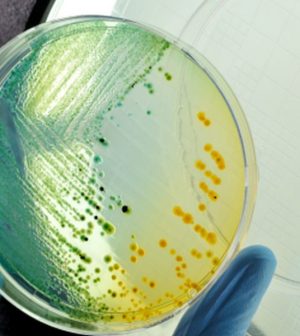- Could Your Grocery Store Meat Be Causing Recurring UTIs?
- Are You Making This Expensive Thermostat Error This Winter?
- Recognizing the Signs of Hypothyroidism
- 10 Strategies to Overcome Insomnia
- Could Artificial Sweeteners Be Aging the Brain Faster?
- Techniques for Soothing Your Nervous System
- Does the Water in Your House Smell Funny? Here’s Why
- Can a Daily Dose of Apple Cider Vinegar Actually Aid Weight Loss?
- 6 Health Beverages That Can Actually Spike Your Blood Sugar
- Treatment Options for Social Anxiety Disorder
Vaginal Bacteria May Affect Herpes and Zika Transmission

Vaginal bacteria may affect the sexually transmitted Zika virus and herpes simplex virus-2, possibly helping to protect women from these infections, a new study suggests.
“The human vagina has a wide array of bacterial species living in communities called the microbiome; these are very important for a woman’s health,” study lead author Megan Amerson said. She’s a doctoral student at the University of Texas Medical Branch at Galveston.
The researchers ran a series of laboratory experiments to see how different bacterial environments affected how well the viruses survived and replicated. Amerson’s team used transplanted vaginal microbiome samples from healthy donors.
Cultures with more Lactobacillus bacteria were considered the more healthy environment. Lactobacillus is normally found in the mix of bacteria in a healthy vagina, the researchers explained.
They found that the herpes simplex virus-2 replicated more in cultures that contained less Lactobacillus. The researchers found mixed results with the Zika virus, and they said this suggests more specific species of bacteria might affect Zika replication. Further studies are needed to determine what kind of bacterial species affect Zika, the investigators said.
“When confronted with viruses, such as those responsible for sexually transmitted diseases, these vaginal bacteria can limit or possibly prevent infection by changing the expression of genes within the vaginal cells,” Amerson said in a news release from the American Society for Microbiology.
The findings were presented last week at the American Society for Microbiology’s annual meeting, in New Orleans. Studies presented at meetings are typically viewed as preliminary until they’ve been published in a peer-reviewed journal.
More information
The U.S. Centers for Disease Control and Prevention has more on sexually transmitted diseases.
Source: HealthDay
Copyright © 2026 HealthDay. All rights reserved.










